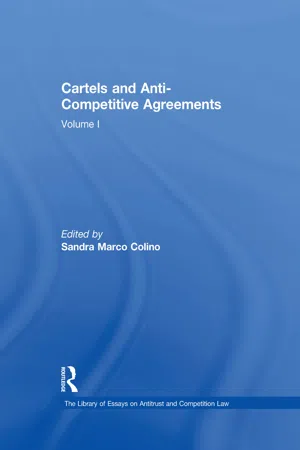Barak Y. Orbach*
I. INTRODUCTION
All antitrust lawyers and economists know that the stated instrumental goal of antitrust laws is “consumer welfare,” which is a defined term in economics.1 Nevertheless, they do not know or agree about the meaning of the term in antitrust. This article chronicles how academic confusion and thoughtless judicial borrowing led to the rise of a label that 30 years later has no clear meaning. This article reviews the debate over consumer welfare in antitrust law and explains why the term cannot accommodate its common academic interpretations. More specifically, the article introduces the antitrust consumer welfare paradox: it shows that, under all present interpretations of the term “consumer welfare,” there are several sets of circumstances in which the application of antitrust laws may hurt consumers and reduce total social welfare. More importantly, the Article emphasizes a well-known point: the present antitrust methodology cannot accommodate welfare analysis and therefore the use of the term “welfare” is misleading.
In the 1960s, Robert Bork published a series of provocative articles in which he attacked the state of antitrust policy in the United States.2 Bork wrote at a time when much of the discussion of antitrust law reflected a preoccupation with protecting small businesses.3 He identified the weaknesses and flaws of this obsession with small businesses. Most notably, Bork opened his article The Goals of Antitrust Policy with a sentence that captured and popularized the Borkean approach to antitrust: “The life of the antitrust law ... is ... neither logic nor experience but bad economics and worse jurisprudence.”4 To correct this chaos, Bork advanced a simple thesis, stating that “existing statutes can be legitimately interpreted only according to the canons of consumer welfare,”5 and stressed that “[c]onsumer welfare is the only legitimate goal of antitrust, not because antitrust is economics, but because it is law.”6 At the same time, economics lay in the background. In promoting “consumer welfare” as the object of antitrust law, Bork selected a phrase of great rhetorical power, because it combined popular appeal with a patina of economic erudition.
In 1978, Bork published his influential book, The Antitrust Paradox, which summarizes his work in antitrust law. He started with the proposition that “[a]ntitrust policy cannot be made rational until we are able to give a firm answer to one question: What is the point of the law—what are its goals? Everything else follows from the answer we give.”7 The answer that dictated the Borkean approach to antitrust was that Congress adopted the Sherman Act as a “consumer welfare prescription.”8
In typical Borkean clarity, Bork elaborated that “‘[c]ompetition,’ for purposes of antitrust analysis, must be understood as a term of art signifying any state of affairs in which consumer welfare cannot be increased by judicial decree.”9 Thus, to his approach, competition laws were all about consumer welfare maximization.
Bork is not a man of consensus.10 His analysis of the goals of antitrust laws is no exception: his views were fiercely debated by antitrust scholars and practitioners throughout the 1960s, 1970s, and early 1980s.11 The Supreme Court, however, quickly adopted Bork’s “consumer welfare prescription,” making it the stated law of the land.12
In 2005, Herbert Hovenkamp wrote on the dust jacket of his book, The Antitrust Enterprise, that “[a]fter thirty years, the debate over antitrust’s ideology has quieted. Most now agree that the protection of consumer welfare should be the only goal of antitrust laws.”13 In the introductory chapter of the book, Hovenkamp stressed that the “only articulated goal of the antitrust laws is to benefit consumers.”14
The Antitrust Paradox ended the debate over the stated goals of antitrust law and opened a new debate over the meaning of the term “consumer welfare.” Antitrust scholars have known for many years that Bork was “confused” when he used the term “consumer welfare.” Yet, we have failed to inform courts who borrow from Bork’s terminology that they are relying on flawed analysis and misleading economic terminology.
Bork did a considerable service in challenging the protectionism of antitrust law. His terminological confusion would not have mattered if the question were simply one of playing word police and insisting that economic terms be used correctly. The larger problem is that the term “consumer welfare” can be used to promote ideas that have questionable economic merit, while dismissing the genuine economic objections to those ideas.
This article, therefore, informs courts about the meanings and limitations of the term “consumer welfare” in antitrust law. It is a poor term that is inconsistent with the antitrust methodology.
Because this article examines the foundations of economic mislabeling, a statement of perspective is required upfront. Every printed work probably contains several mistakes and errors. The present article is no exception. The body of works of Robert Bork transformed antitrust law in many positive ways and for that Bork deserves a place of honor in the Antitrust Hall of Fame, once such an institution is established. Bork clarified that antitrust laws should promote efficiency, rather than protect inefficient small businesses. He popularized several basic economic principles and terms that are central to antitrust analysis. He is an antitrust giant.
This article deals with one particular term in the antitrust writing of Robert Bork that is important to the p...
